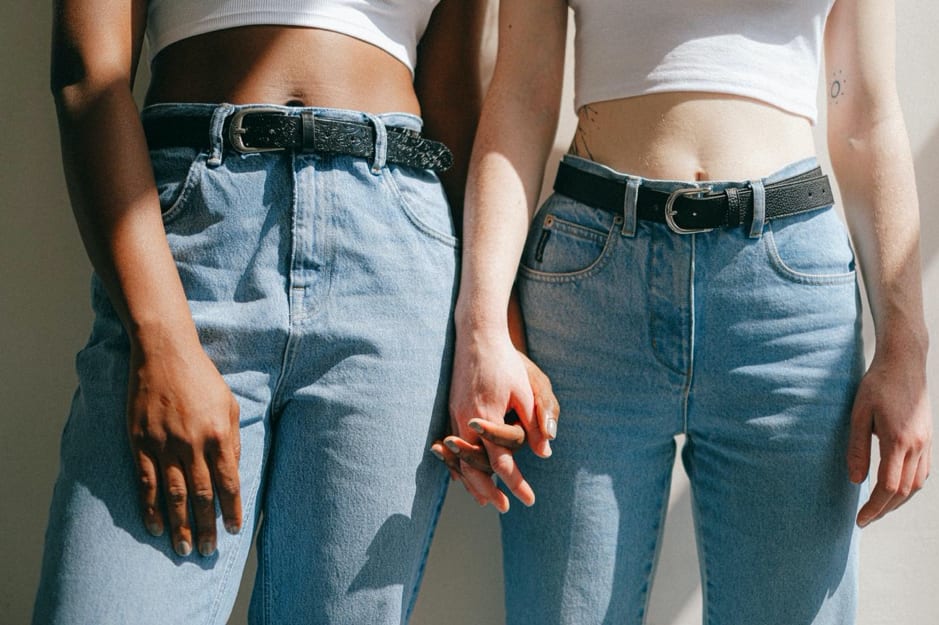
Read the Charter of Independence here.
BY SOPHIA BAKER
The age of streaming has permanently changed the television landscape. With a menagerie of shows ready to view at the click of a button, competition for renewal is ruthless. But viewers point to a growing trend that puts one particular genre on the chopping block.
Recent TV-show cancellations have caused controversy online, with the Gay Times and them reporting that cancellations are disproportionately affecting shows that tell queer narratives, particularly narratives that centre queer women.
While the queer community has pushed for years to see themselves represented in media, earlier this year LGBTQIA+ publication Autostraddle found that 140 TV shows featuring queer women and/or transgender characters were cancelled after their first season.
Debate stirred again after the recent cancellation of Netflix's Warrior Nun (see this TIME magazine report) and the shortening of the second season of Amazon Prime’s revival of A League of Their Own, noted by Slash Film. These shows featuring lesbian love stories were not renewed despite being generally well-received. Warrior Nun spent three weeks in Netflix's top-10 series ranking.
In May, with Disney+ announcing it would purge at least 50 series from its platform, the service was criticised for targeting queer shows such as Willow and Dollface, according to Deadline.
Conversations on TikTok and Twitter attest to the ways women-loving-women (or WLW) communities have commiserated the trend of streaming services axing successful shows that feature queer women after one or two seasons, while less popular shows featuring straight couples are renewed.
Meanwhile, research shows that the majority of LGBTQ+ people want to see more queer representation in TV shows. For instance, the Beyond the Rainbow study into LGBTQ+ marketing, by creative transformation company WPP, found that less than 40 per cent of people who sought out queer content were satisfied with the way LGBTQ+ people are represented, while two out of three LGBTQ+ people want to see more queer representation.
Monash University communications and media studies lecturer Whitney Monaghan says the “cancel your gays” trend is having a growing effect.
“I think the argument the streaming video services would use [to justify cancelling these shows] is that they just haven’t been successful, but there’s not a lot of transparency about how they define ‘success’,” Dr Monaghan says.
Lesbian media enthusiast and content creator Aria Velz says the cancellations of lesbian shows demonstrate a lack of faith, on the part of streaming services, that shows featuring queer women can thrive.
"It's all about the numbers," Ms Velz says. "You can't deny that there are certainly people who don't believe they'll be able to connect to LGBT stories because they themselves are not LGBT," she says.
"They are just not putting those kinds of resources towards these lesbian and queer-centred shows."
Despite this, Ms Velz is confident that there is still plenty of good lesbian media in the form of TV shows, movies and smaller web series.
"It is really painful to watch all these beloved shows being cancelled and never reaching their stride, but I also don't want to leave lesbians in despair that they will never find a storyline that they will connect with — because they are out there."
The Where Are We on TV report for 2021-22, by the world’s largest LGBTQ media advocacy group, GLAAD, found that for the first time lesbians represented the majority of the LGBTQ+ characters on TV.
Closer to home, Screen Australia’s Seeing Ourselves 2 report in April found that of the 228 LGBTQI+ characters on Australian TV in 111 shows, more than half (54 per cent) were queer women.
Dr Monaghan says while this is progress, there needs to be a nuanced discussion about what good representation means.
“Queer women seem to be increasingly represented in mainstream spaces like television. This isn’t a simple trajectory of progress though,” Dr Monaghan says.
“We need to push for better representation, not just more representation," she says.
"Part of that means that we need to be vocal about the media that means a lot to us ... We also need to think about what kinds of stories are being told (or not) about queer women and who is writing, producing, and directing them.”
Shows such as HBO’s The Sex Lives of College Girls, Amazon Prime's High School, Grease: Rise of the Pink Ladies on Paramount+ and Apple TV's See offer a hopeful glimpse into the future of lesbian media.
While there is still a way to go for lesbian representation, Ms Velz says the push for more WLW characters on screen is a step in the right direction.
“I am quite pleased with the direction that queer media is going … It does leave me feeling a little more hopeful than other lesbians.”